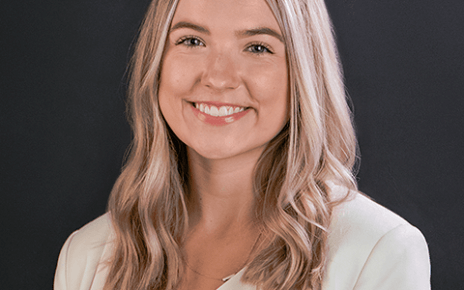Since 2000, when Seton Hall’s Boland Hall dorm caught fire killing three students, dorm fire safety has increased dramatically across the country with the hope of preventing another similar tragedy. Universities across the country have made changes called for by federal and state politicians.
Richard J. Orlando, assistant chief of the Brick Township Bureau of Fire Safety, said the Boland fire led to major changes including the installation of fire sprinklers in college dorms, smoking bans in dorms and fire drill participation across the country.
According to Orlando, within six months of the fire, the state Legislature passed legislation requiring New Jersey’s 43 residential colleges and high schools to install fire sprinklers by 2004.
Orlando also said that colleges were now required to report their statistics about fires for the first time. Fire safety advocates also continue to improve fire safety in off-campus housing.
The University Police Department works to eliminate safety hazards by cooperating with various campus departments. In addition to assisting with campus fire safety, Chief Bill McElrath and Captain Dean Volpe also serve on the University Fire and Safety Committee, which meets regularly.
According to Captain Dean Volpe, the University police works with departments across campus to ensure a safe environment on campus
The Seton Hall fire led to universities being more fire conscious. Melissa Dale, Director of Compliance for Facilities Management, said, “It (Seton Hall) was a big eye opener and it became apparent how big of an issue fire safety really is.”
Dale said that all residential assistants are trained in fire extinguisher use and, “We would be more than happy to open that offer to student groups on campus,” said Dale.
Alan Jean, a residential assistant in Laurel Hall, said that residential assistants receive training in fire safety.
“It typically consists of a fire safety video and fire extinguisher training, though we are told to evacuate instead of combating a fire,” said Jean.
Dale does say that students should not fight a fire and put themselves in harm’s way. Dale said, “Our number one priority is student safety. That is our upmost concern.”
The University has proactive plans to make sure students and the campus community is prepared in case of a fire.
Jean said, “The University conducts regular fire drills every semester, there are safety inspections during room inspections, and every room is equipped with an evacuation chart with primary and secondary routes.”
Dale added that fire sprinklers are inspected over winter break while the students are not in the dorms. Other things that Dale and her three member team of fire specialists is an event in October that is dedicated to fire safety.
Dale continues that the University takes inspections of fire sprinklers, fire extinguishers and fire drills very seriously and hopes that students do the same.
“I hope everyone understands how big and serious an issue fire safety is,” said Dale. She does admit that students have been frustrated by doing fire drills in cold weather but wants to students to know that fire drills are planned well in advance.
Emily Booker, junior communication major, lived in Redwood Hall last year. She feels that dorm fire safety is not taken as seriously as it should.
Booker said, “The most common offense I saw or was aware of was the use of Christmas lights and other strung lights for decorations, and covering the walls with posters, pictures, and other decorations. Under campus policy, you are only allowed to have a certain amount of flammable items on the walls, but I know people whose walls were covered in picture collages and posters.”
Orlando recommended that universities, in addition to maintenance of fire sprinklers, regular fire drills and not allowing smoking in the dorms, it is also important for colleges to limit drinking on campuses. Both students who were charged with starting the fire at Seton Hall in 2000 admitted to being intoxicated and setting paper on fire as a practical joke.
“Prospective students and parents of students should take dorm fire safety very seriously,” Orlando said. “Parents should ask questions. Have the dorms been retrofitted with the required fire sprinklers? How often are they inspected? Is all testing up to date for all fire systems?” Orlando stated.
While the Seton Hall fire did take place overnight, the University does not perform overnight fire drills but they do have “Night time fire drills.” Dale does say that there are occasions when fire alarms will go off on the overnight, any time after midnight.
“These are unplanned overnight fire alarms, normally just burnt popcorn or something like that but we are prepared and our staff is notified,” said Dale.
Booker, however, feels overnight fire drills could be beneficial to the students. She also said that she has only experienced afternoon fire drills.
Jean said that most University students take fire safety very seriously. Orlando agreed that this is a step in the right direction.
“Prevention is the key to fire safety. Educating all students and staff prior to admission to the dorms is also important and the control of under-age drinking,” said Orlando.
Orlando also recommended showing students a documentary titled From Hell and Back about the Seton Hall fire to reinforce the dangers of dorm fires.


